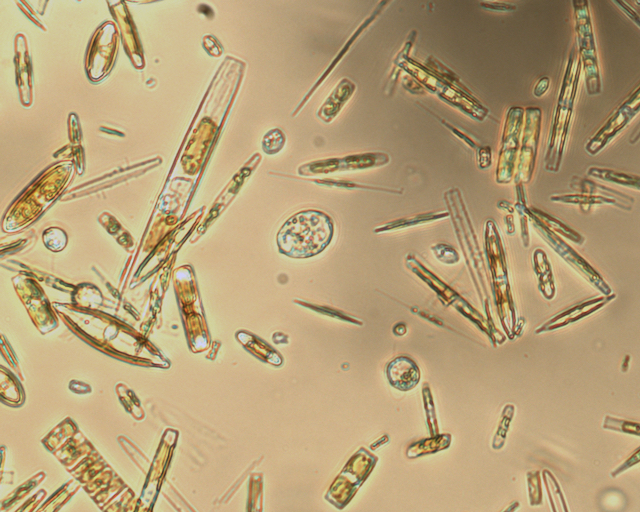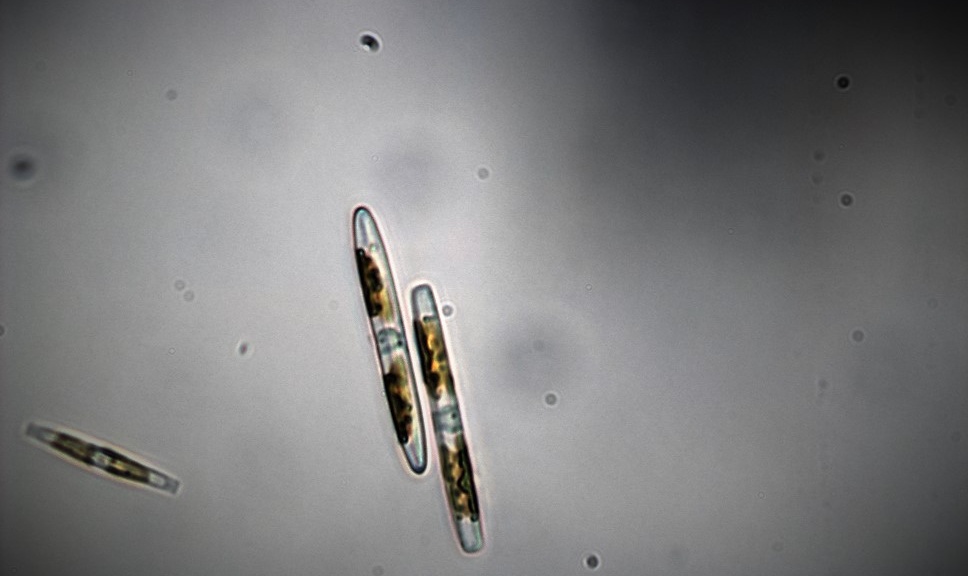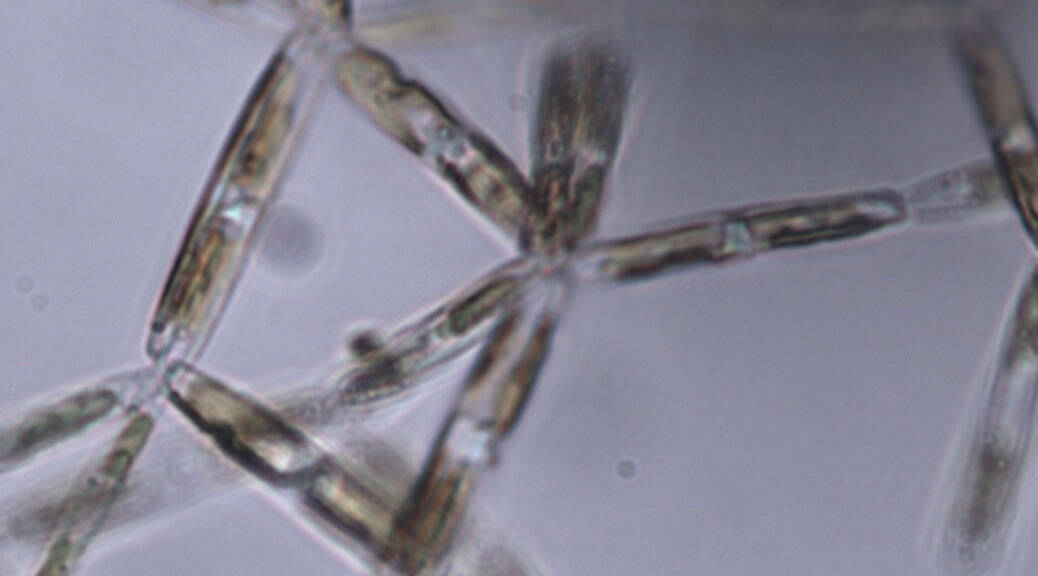It was to study diatoms, the microalgae that dominate phytoplankton blooms, that the “silica and diatom” team came to Qikiqtarjuaq. To follow the evolution of the phytoplankton bloom, successive Green Edge teams focused their efforts on measuring how fast diatoms form silica shells (frustules) and the rate at which the frustules dissolve. Aude Leynaert was the first to reach the ice camp on May 5, 2016. A month later, Véronique Cornet-Barthaux and Morgane Gallinari took over! Justine Legras, Bernard Quéguiner and Brivaela Moriceau are the last to arrive at the camp!
Tag Archives: Phytoplankton spring bloom
Phytoplankton is active in the water column
Ice algae don’t need much light to photosynthesize and grow.
Continue reading Phytoplankton is active in the water column
After the long winter night, the sudden brightness
A large fraction of the Ocean in the Arctic is covered by ice in the winter. Very little light penetrates under the thick ice recovered by snow during the long polar night. Still phytoplankton, tiny unicellular algae a few 1/1000th of millimeters (1/1000 mm is called a micron) in size and which is at the base of arctic marine food chains, is present in these cold and dark waters.
Continue reading After the long winter night, the sudden brightness



